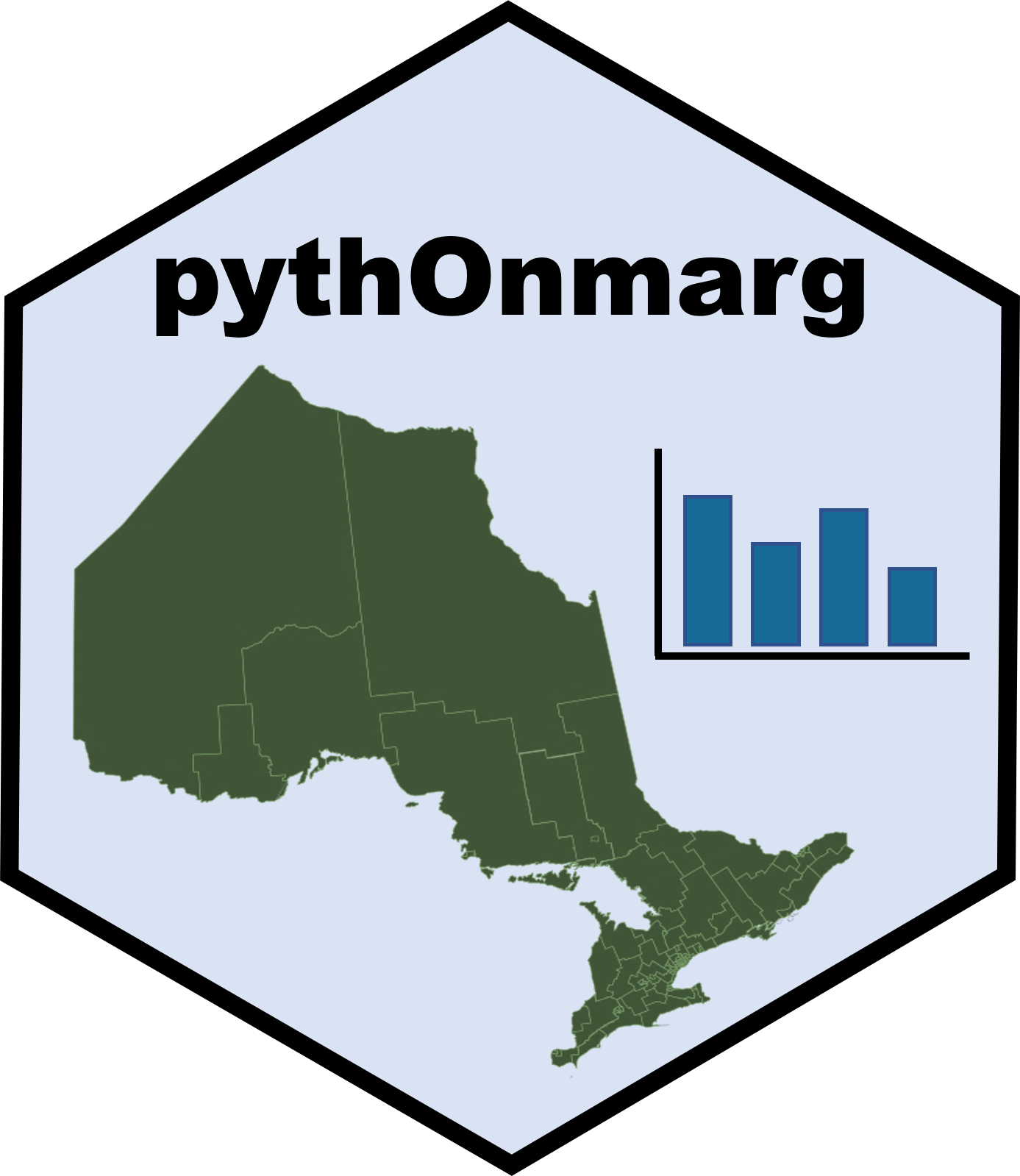Introduction

This is the main page of the pythOnmarg package for Python. The source code for this project is also hosted on GitHub where documentation is provided. See the menu bar for quick links to where the package can be downloaded, and the documentation pane on the side for guides on how to use functions as well as examples.
pythOnmarg is a Python package for downloading Public Health Ontario's Ontario Marginalization Index dataset directly into a Pandas dataframe, without needing to download or merge any files.
pythOnmarg is the Python counterpart of the onmaRg package for R, which contains similar functions. Both packages are updated when Public Health Ontario release their new data every 5 years.
Ontario Marginalization Index
The Ontario Marginalization Index is a socioeconomic model that is built on Statistics Canada census data. The model consists of four dimensions.
In 2021, these dimensions were updated to "Material Resources" (previously called "Material Deprivation"), "Households and Dwellings" (previously called "Residential Instability"), "Age and Labour Force" (previously called "Dependency"), and "Racialized and Newcomer Populations" (previously called "Ethnic Concentration"). This update reflects a movement away from deficit-based language. 2021 data will load with these new dimension names, wheras 2011 and 2016 data will load with the historical dimension names.
Each of these dimensions are imported for a variety of geographic levels (DA, CD, etc.) for the 2021, 2011 and 2016 administrations of the census. These data sets contribute to community analysis of equity with respect to Ontario's Anti-Racism Act. These data sets contribute to community analysis of equity with respect to Ontario's Anti-Racism Act. The Ontario Marginalization Index data is retrieved from the Public Health Ontario website. The shapefile data is retrieved from the Statistics Canada website.
Documentation
Documentation for pythOnmarg is hosted on the GitHub page, under the "docs" folder.
Community Guidelines
Contributions to the project are welcome! These can be initiated through the project's issue tracker or through a pull request. Suggestions for feature enhancements, tips, as well as general questions and concerns can also be expressed through direct interaction with contributors and developers.
If you experience any challenges with this module such as bugs, test support, or feature requests, please feel free to use this issue tracker.